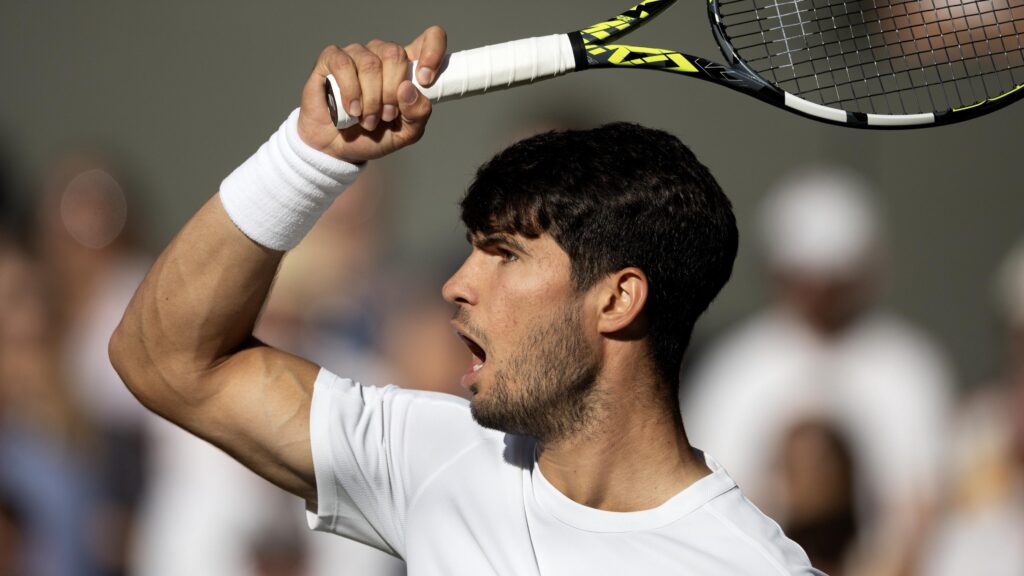The intense world of professional tennis, with its grueling schedules, relentless pressure, and constant spotlight, is increasingly being recognized as a significant contributor to mental health challenges among athletes. Top players like Amanda Anisimova, Carlos Alcaraz, Andrey Rublev, and Madison Keys are bravely sharing their experiences, highlighting the critical need for mental well-being and self-care in the pursuit of athletic excellence.
Amanda Anisimova, who reached the French Open semi-finals as a 17-year-old prodigy, candidly revealed her struggles with burnout and mental health. Four years ago, the pressure became so overwhelming that she found it “unbearable” to even be at tournaments. Taking an extended break from the sport, she chose not to touch a racket for months, instead focusing on personal interests, spending time with loved ones, and even attending university. This period of reset proved invaluable, as Anisimova recently shared, “I learned a lot about myself, my interests off the court and just taking some time to breathe and live a normal life for a bit.” Her return to the tour has been marked by success, including winning the WTA 1,000 event in Doha and breaking into the top 10, underscoring the importance of prioritizing mental health.
Anisimova’s sentiment is echoed by others on the tour. Carlos Alcaraz, a five-time Grand Slam champion, expressed his fear of tennis becoming an “obligation” in a Netflix documentary. He emphasizes the importance of enjoying the game both on and off the court, noting, “It’s about having fun playing tennis, have fun stepping on the court and not thinking about the result… It’s just live in the moment.” His ability to find joy even amidst challenging matches, often marked by a smile, reflects a conscious effort to maintain a healthy perspective.
Madison Keys, an Australian Open champion, shared how therapy helped her separate her identity as a tennis player from her identity as a person. She explained, “From a pretty young age, our identity becomes very wrapped up in being a tennis player… That’s great but when you have tough weeks, months and years on tour, that can take a toll on how you think about yourself as a person.” Keys found it crucial to “figure out how to separate the two and know that you’re not just a tennis player, you’re a full person that has all of these other really great attributes and interests.” This realization, she believes, made her tennis career more manageable.
The pressures faced by top players are immense. Andrey Rublev has openly discussed working with a psychologist to combat anxiety and stress, admitting he previously felt “that crazy anxiety and stress of not understanding what to do with my life.” He now understands that “tennis is just the trigger point. It’s something inside of you that you need to face.” Similarly, Alexander Zverev has spoken about lacking joy and feeling “empty,” while Matteo Berrettini has described the “heavy” feeling of being on court due to persistent injuries. These personal accounts highlight a broader trend within the sport where mental resilience is as crucial as physical prowess.
Aryna Sabalenka, another prominent player, has also invested in her mental health, working with a therapist for five years. She now refers to herself as “my own psychologist,” emphasizing the importance of open communication with her support team. “We can talk about whatever. I know they’re not going to judge me. They’re not going to blame me. They just going to accept it, and we are going to work through,” she stated.
The experiences of these athletes underscore a vital message: taking care of one’s mental health is not a sign of weakness, but a strategic necessity for sustained success and personal well-being in the high-stakes world of professional sports. As Anisimova aptly put it, “You’re not just a tennis player.”

